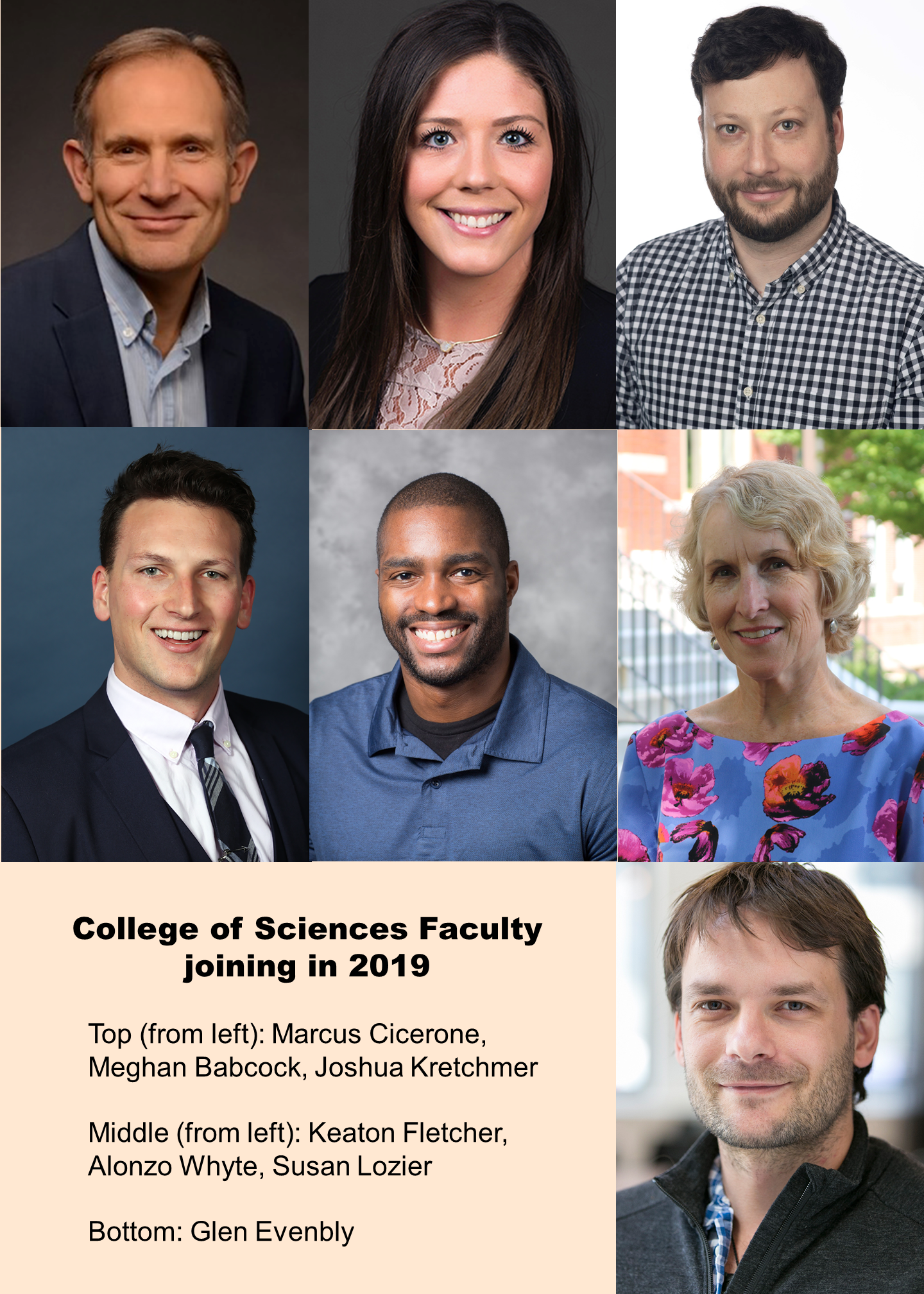
Sep 06, 2019 - Atlanta, GA
The College of Sciences welcomes seven members of faculty who joined in 2019. They include Susan Lozier, the new dean, Betsy Middleton and John Clark Sutherland Chair, and professor in the School of Earth and Atmospheric Sciences. Six others joined the Schools of Chemistry and Biochemistry, Physics, and Psychology, as well as the Undergraduate Program in Neuroscience.
Meghan Babcock, Academic Professional, School of Psychology
Meghan Babcock earned her Ph.D. in experimental psychology from the University of Texas, Arlington, with an emphasis in social and personality psychology. As an academic professional, she is responsible for supporting undergraduate education through teaching and academic advising for all undergraduate psychology majors. She teaches undergraduate courses in psychology – including Research Methods in Psychology and Social Psychology – and manages the laboratory sections for the Research Methods course. In addition, she serves as a supervisor for undergraduate senior theses.
Marcus Cicerone, Professor, School of Chemistry and Biochemistry
Marcus Cicerone was a former group and project leader for the National Institute of Standards and Technology. His research centers on the development and application of Raman imaging approaches and the dynamics of amorphous condensed matter. His research group has logged many imaging firsts, including the first to obtain quantitative vibrational fingerprint spectra from mammalian cells using coherent Raman imaging and the first to identify specific structural proteins from coherent Raman imaging.
Glen Evenbly, Assistant Professor, School of Physics
Born in New Zealand, Evenbly earned physics degrees from the University of Auckland, in New Zealand (B.S.), and the University of Queensland, in Australia (Ph.D.). After postdoctoral work in California Institute of Technology and the University of California, Irvine, he served as an assistant professor in the University of Sherbrooke, in Canada. He researches the development and implementation of tensor network approaches for the efficient simulation of many-body systems, with additional applications to data compression and machine learning. He received the 2017 Young Scientist Prize in Computational Physics from the International Union of Pure and Applied Physics for developing new renormalization methods to study quantum systems.
Keaton Fletcher, Assistant Professor, School of Psychology
Keaton Fletcher is an industrial-organizational psychologist who studies work team leadership and associated outcomes for individuals, teams, and organizations. Specifically, he explores how a leader's differential treatment of team members can alter team dynamics, such as information sharing, trust, conflict, and cooperation, as well as individual outcomes such as health behaviors, job attitudes, and psychological and physical well-being. He examines these dynamics and implications in the field of healthcare, given the unique challenges healthcare teams face (e.g., interruptions, membership change). He also explores ways to improve leadership behaviors and workers’ well-being through training and intervention.
Joshua Kretchmer, Assistant Professor, School of Chemistry and Biochemistry
Joshua Kretchmer joined Georgia Tech after graduate and postdoctoral studies at the California Institute of Technology. He is a theoretical and computational chemist with the rare ability to combine the two important areas of electronic structure and quantum dynamics for large systems. His research focuses on developing new techniques to understand and predict the transport of charge and energy in complex environments and materials. He will apply his new techniques and insights to various applications, from chemical control in optical cavities, to light-harvesting materials, to surface catalysis.
Susan Lozier, Professor, School of Earth and Atmospheric Sciences
Susan Lozier is also the new dean and Betsy Middleton and John Clark Sutherland Chair of the College of Sciences. As dean, she will continue her research, studying the large-scale overturning circulation of the ocean, which impacts regional and global climate through the redistribution of heat. Overturning circulation – also known as the ocean conveyor belt – is also responsible for taking anthropogenic CO2 from the atmosphere and sequestering it in the deep ocean. Lozier leads the Overturning in the Subpolar North Atlantic Program (OSNAP), a National Science Foundation (NSF)-funded, international collaboration that aims “to provide a continuous record of the full-water column, trans-basin fluxes of heat, mass and freshwater in the subpolar North Atlantic.”
Alonzo Whyte, Academic Professional, Undergraduate Program in Neuroscience
After Alonzo Whyte earned his Ph.D. in from the University of St. Andrews, in Scotland, he completed an NIH-funded Fellowship in Research and Science Teaching (FIRST) at Emory University, focusing on developmental factors during adolescence that increase vulnerability to drug addiction and maladaptive decision-making. He teaches in the Principles of Neuroscience course and several upper-level neuroscience courses, in addition to coordinating the development of new experiments for the NEUR 2001 lab sections. He also provides academic advising to undergraduate neuroscience majors and serves on the Neuroscience Curriculum Committee for the management and development of neuroscience core and elective courses.